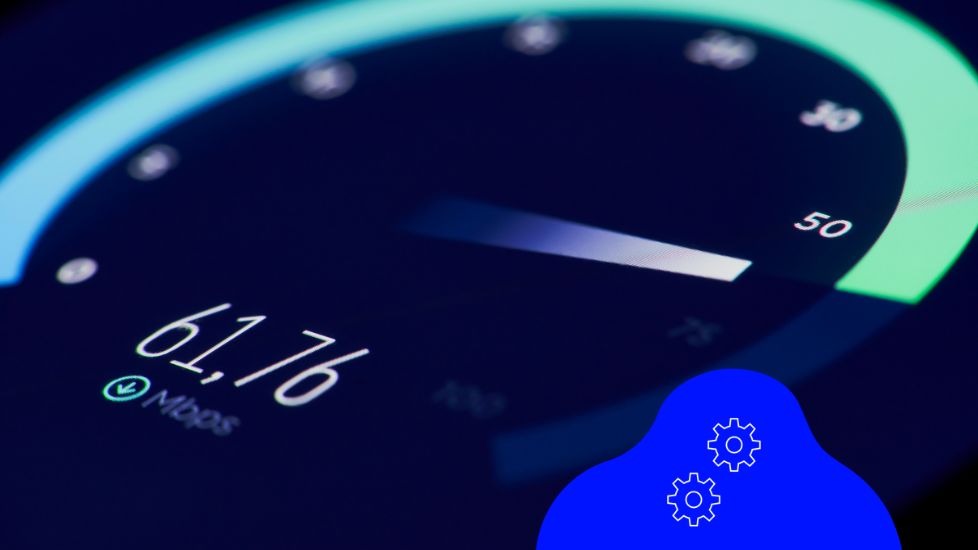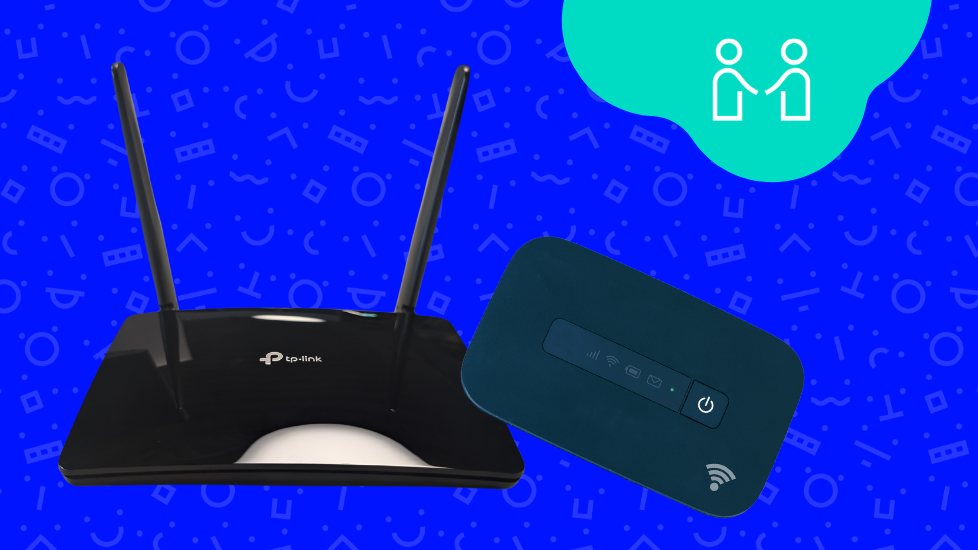Mobile internet for everyone and everything
5G Works at Home, Too!
The development of the last two decades speaks for itself. From mobile data connections that are barely usable by today’s standards, cellular has developed into a solution for entire offices. Digital Republic is also networked exclusively via its own SIM cards and can say with satisfaction: 5G allows all forms of work that a modern tech startup needs, from video meetings to the operation of a telephone exchange. So has 5G reached the point where the cable connection at home can be replaced by cellular? We think: it’s been possible for a long time – and it’s even more attractive!
Forget Complicated Contracts and Rental Hardware!
The market for mobile contracts is highly competitive and is developing accordingly fast. Whereas in the past specific cell phones with SIM locks were tied to the provider, today low-price offers and free hardware are being advertised. If you want to hold your own as a provider, you have to offer added value and give users the greatest possible freedom and flexibility.
The situation is still somewhat different for wired Internet providers. Here, provider-specific hardware, location-based rates and complex contract modalities are still the norm. Anyone who has already had to move or change providers knows what we are talking about. Often, a TV and/or fixed network subscription is also attached to the Internet connection. The Moneyland comparison service has already confirmed several times in guide article that users can save money if they buy their desired services separately and that it is not so easy to change Internet providers.

The good news: Thanks to 5G, these times are finally over! With a 5G routers and the appropriate SIM card, you’re connected immediately and completely independently. Even if you move house or want to take your WLAN with you into the mountains. And you benefit from the modern standards of a mobile communications contract. This means no or very short notice periods, independence from home connections, lower prices, and often unlimited data volume.
More Self-Determined Surfing With 5G
With a SIM card from Digital Republic, thanks to our tariff model, you always have complete freedom over your connection speed and therefore your costs. You can flexibly adjust, extend, pause or terminate your subscription. In contrast to most cable providers, there is no minimum contract period, no cancellation period, and also no connection or switching fee. The costs can be viewed transparently at any time and you can conveniently manage your usage yourself via the customer portal. You can find out why we handle the whole thing so simply and without obligation in our article “Connected Unbound”.

These are advantages that have already established themselves on the majority of the mobile communications market or will do so on a broad basis. Mobile customers are generally very price/performance-conscious and simply switch to a more suitable provider if conditions are poor. In the case of Internet within one’s own four walls, this switch is often made more difficult, because the cable connection is not readily available like mobile reception. The fiber-optic connection must first be switched on and a modem compatible with the network operator’s specifications is required.
So, while changing the SIM card is all it takes for cellular, the path to a successful provider change is a few steps longer for cable providers.
Is Mobile Speed Really Enough?
The most common argument in favor of fiber and against cellular is the consistently high speed of a fiber connection. Depending on the location, 10 Gbit/s or more are possible with fiber optics. But the problem is not the speed. The average household is already well supplied with 300 Mbit/s for typical applications such as media streaming, gaming and office work. In addition (as with cellular), the theoretical maximum speed cannot be achieved at every address because the last mile is not yet fully developed in many Swiss households. Self-determined users know their needs and accordingly no longer want to pay for something they do not use or fully utilize.
With 5G and our Flat 2000, you can already surf at up to 2 Gbit/s via cellular and also benefit from the option of adjusting the speed as required. You can find out what speed you really need for your applications here.
As cellular standards advance, connection speeds will continue to increase. The race will probably not be decided by speed alone, but by the way in which the services are offered. For many users, however, 5G has already reached a point where cellular could be a worthwhile alternative to fiber optics.
Discover Our Other News Articles

What Are Mbits and How Many Does a Cell Phone Need?
Whether it’s your home internet or your cell phone plan, Mbits are being talked about almost all the time. It’s clear that Mbits are supposed to indicate the speed of your internet connection. But what the numbers actually mean is not always clear. Does the principle of “the more, the better” apply? Or is there an ideal speed for smartphones?

Router vs. Hotspot: What’s the Difference?
If you want to connect to the internet, you usually do so via a router or hotspot. Both are sold as separate devices, and there is sometimes a lot of confusion when it comes to finding the right device for your needs. We want to clarify the terminology and tell you what distinguishes a router from a hotspot.

Tablet or Laptop? What’s Best for You?
Tablets have been acceptable as primary computers since the introduction of the iPad Pro, at the latest. Students have appreciated the light weight and flexibility of tablets for lecture notes for quite some time, but laptops have usually been the primary devices. Whether or not a tablet is the better choice as a main computer for you depends on your requirements and habits. To help you decide, we have summarized the strengths and weaknesses of the device types for you.
